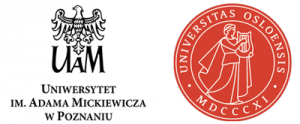“European Flagship Universities: Balancing Academic Excellence and Socio-Economic Relevance (FLAGSHIP)” (2014-2017), National Research Council (NCN – Narodowe Centrum Nauki).

Marek Kwiek received a Harmonia research grant from the NCN (National Research Council) for the period 2014-2017 for a project: “European Flagship Universities: Balancing Academic Excellence and Socio-Economic Relevance (FLAGSHIP)”. The major international partner in the project is Professor Peter Maassen of the University of Oslo. The amount of the grant: 120,000 EUR. Two postdoctoral scholars are employed in the project.
The overall objective of this project is to produce relevant theoretically-based and empirically-informed knowledge about the way in which selected national research-intensive (“flagship” in international research terminology of this project) universities in Europe interpret and use their institutional autonomy in creating an effective balance between strengthening the excellence and securing the socio-economic relevance of their academic activities.
The project addresses the following two overall questions:
- What are the organised settings and institutional characteristics that attract highly qualified staff and students, encourage academic excellence and free enquiry and also make universities take seriously their social and economic responsibilities?
- What are the main factors that over the last ten years have affected these organised university settings and institutional characteristics?
Three major research questions are the following:
- How have European flagship universities over the last ten years adapted to changes in their political and socio-economic environments?
- How is universities’ institutional autonomy interpreted by central actors inside and outside the institutions?
- Which factors affect how flagship universities use their autonomy?
A “flagship” university is defined as a comprehensive research-intensive university, located in one of a country’s largest urban areas, most often the capital. It is in general among the oldest and largest institutions for higher learning of its country. The project studies 8 universities in 8 European countries: University of Vienna (Austria), University of Copenhagen (Denmark), University of Helsinki (Finland), University of Amsterdam (Netherlands), University of Oslo (Norway), University of Stockholm (Sweden), University of Zurich (Switzerland) and University of Warsaw (Poland). For Poland, University of Warsaw, one of the oldest, located in the capital city, with the highest number of students and faculty, the largest operating and research budgets in the country, and the highest share of competitive research funding received from the NCN (Polish National Research Council) in 2011-2012, is a natural candidate for detailed international comparative research.
The starting point of the project is that organizational change within European flagship universities is triggered by reforms enhancing institutional autonomy. Organizational change can be spotted at multiple levels of analysis. First, at central organizational and intra-organizational levels, we look at change in organizational design; second, at organizational and system level, we observe the relationship between the university and its environment. On the background, EU policies are taken into consideration, making thus Europe an additional level of analysis. The project uses case study research methodology and its strong empirical component is divided into two phases: institutional level and faculty/department level. Five academic areas are selected for cross-national comparisons.
An unbiased, empirically-supported research into transformations in higher education will provide the new knowledge base for making strategic decisions in national higher
education policies in the years to come. The project engages all major stakeholders (internal and external) in the production, discussion and dissemination of project results. This project is both empirically-based and comparative and it focuses on those sectors of economy (knowledge-intensive) and those fields of national social policies (higher education) which are most often discussed as critical to the competitiveness of Polish economy. Polish universities have never been so systematically, comparatively explored in empirical terms together with selected European institutions: current research results will introduce and expose them to European-level research and will be used by both Polish and international teams of researchers.
The structure of the project is the following: there is a Norwegian coordinator and 7 national research teams. Funding for each team comes from national research councils and own research funding sources. All other partners in the project are located in renowned higher education research centers. The Polish team has so far covered the following costs: three research visits to Norway to the partner while preparing the structure of the joint project. The NCN will cover the costs of personnel (4 persons, including two newly hired postdocs and a PhD student) and other costs (related to international travel due to a comparative nature of the project, local travel to collect empirical material and books/journals bought for the AMU library). The project is governed by its rulebook, prepared together with the applicant, and it is supervised by its international Advisory Board, with both European and North American academic members. The possible scientific and managerial risks in an international comparative project are reduced due to a significant experience of both the partner and the applicant in such research undertakings.


